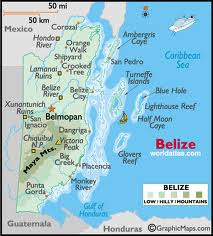
Overall Reflections
Successes:
Our plan to facilitate dialog among principals went as I hoped. They saw each other’s faces, learned about their backgrounds a bit and heard about how they have similar struggles despite serving different populations. We did not help them set up a way to communicate as a group at that time, but Dr. Catapano did get everyone’s emails to hopefully attempt that-though one principal had to pull out a slip from his wallet to write down his email address since he did not know it. That wasn’t a very hopeful sign!  The workshop we led for teachers on Thinking Maps went better than I expected. Teachers were not overwhelmed and came up with creative ideas for how to use them for regular and differentiated instruction.
The workshop we led for teachers on Thinking Maps went better than I expected. Teachers were not overwhelmed and came up with creative ideas for how to use them for regular and differentiated instruction.
 The workshop we led for teachers on Thinking Maps went better than I expected. Teachers were not overwhelmed and came up with creative ideas for how to use them for regular and differentiated instruction.
The workshop we led for teachers on Thinking Maps went better than I expected. Teachers were not overwhelmed and came up with creative ideas for how to use them for regular and differentiated instruction. LaChawn’s workshop on formative assessment was a perfect lead into our topic and we were able to reference each other’s strategies throughout both workshops. We purchased small prizes for participation, which likely helped motivate the teachers to be more engaged. It felt good to give them these basic supplies that we saw were lacking in many classrooms.
LaChawn’s workshop on formative assessment was a perfect lead into our topic and we were able to reference each other’s strategies throughout both workshops. We purchased small prizes for participation, which likely helped motivate the teachers to be more engaged. It felt good to give them these basic supplies that we saw were lacking in many classrooms. Challenges:
I function best personally when I operate within a schedule. My challenge was going with the flow of the seemingly constant changes in the Belize culture. One principal said, “We were going to start our dinner at 5:30, but that’s ‘Belize’ time so there is no telling when it will actually be.” A soccer game was supposedly canceled according to what someone heard but then we heard it did happen. Meetings with the ministry officials were not solidified until very last minute. That was uncomfortable but forced me to relax and go with it.
But in schools, there was a great deal of down time where students were waiting for something to happen. For example, in the high school, the bells are not automated and so kids have to wait for someone to manually ring the bell for class changes and they are frequently not rung when classes are supposed to end. Teachers were not using this extra time for additional instruction but simply sat and waited for that bell with no telling how long it would take.
My biggest challenge in this visit was hearing about and observing how many teachers handle students with special needs in their classrooms. That is, they are often simply ignored. One child with a significant vision limitation was eager to participate in one second grade (Infant 2) classroom but was ignored, and her though she had workbooks, they were upside down and clearly without any larger font than normal. The teacher did not even acknowledge her presence. This behavior was confirmed by the ministry official as what teachers do since they are not trained with how to teach these kids. Still, it seemed wrong to me to ignore students even if the teachers do not know best ways to “teach” them.
with a significant vision limitation was eager to participate in one second grade (Infant 2) classroom but was ignored, and her though she had workbooks, they were upside down and clearly without any larger font than normal. The teacher did not even acknowledge her presence. This behavior was confirmed by the ministry official as what teachers do since they are not trained with how to teach these kids. Still, it seemed wrong to me to ignore students even if the teachers do not know best ways to “teach” them.
 with a significant vision limitation was eager to participate in one second grade (Infant 2) classroom but was ignored, and her though she had workbooks, they were upside down and clearly without any larger font than normal. The teacher did not even acknowledge her presence. This behavior was confirmed by the ministry official as what teachers do since they are not trained with how to teach these kids. Still, it seemed wrong to me to ignore students even if the teachers do not know best ways to “teach” them.
with a significant vision limitation was eager to participate in one second grade (Infant 2) classroom but was ignored, and her though she had workbooks, they were upside down and clearly without any larger font than normal. The teacher did not even acknowledge her presence. This behavior was confirmed by the ministry official as what teachers do since they are not trained with how to teach these kids. Still, it seemed wrong to me to ignore students even if the teachers do not know best ways to “teach” them. Takeaways:
Teacher training does not a good teacher make. Providing opportunities for professional growth with collegial support is a big aspect of improvement awareness of instructional needs and practices. That happens when leadership promotes and provides those times and builds it into the culture.




No comments:
Post a Comment